It was a conversation with a friend’s octogenarian mother — a conversation that wandered back and forth, expanded and contracted over a couple of visits —that brought Baduvapuli pickle to my table. With a lifetime of food memories locked within her frail frame, she spoke eagerly, in bursts of animated words, retreating abruptly into silence when her hearing faded without warning, returning at will.
Seated on a veranda that ran along the front of the house, coffee bushes crowding the edges of the yard, bold blooms in pots balanced on ledges, she revived decades of days and nights of cooking for family and friends: most of our food talk was about wild game, from a time when it was still part of our cuisine. Amidst the stories of roasting, smoking and extended attention that game requires, Baduvapuli was the surprise. It appeared suddenly, a memory that animated this graceful and generous woman as she remembered a pickle one of her grandmothers made for her when she was a girl. With barely three spices and chopped fruit, it was easily made. It was the ideal, quick-fix pickle for an unexpected wedding or special occasion at one time, as it did not need time to mature. Its shelf life was short, so it was eaten quickly.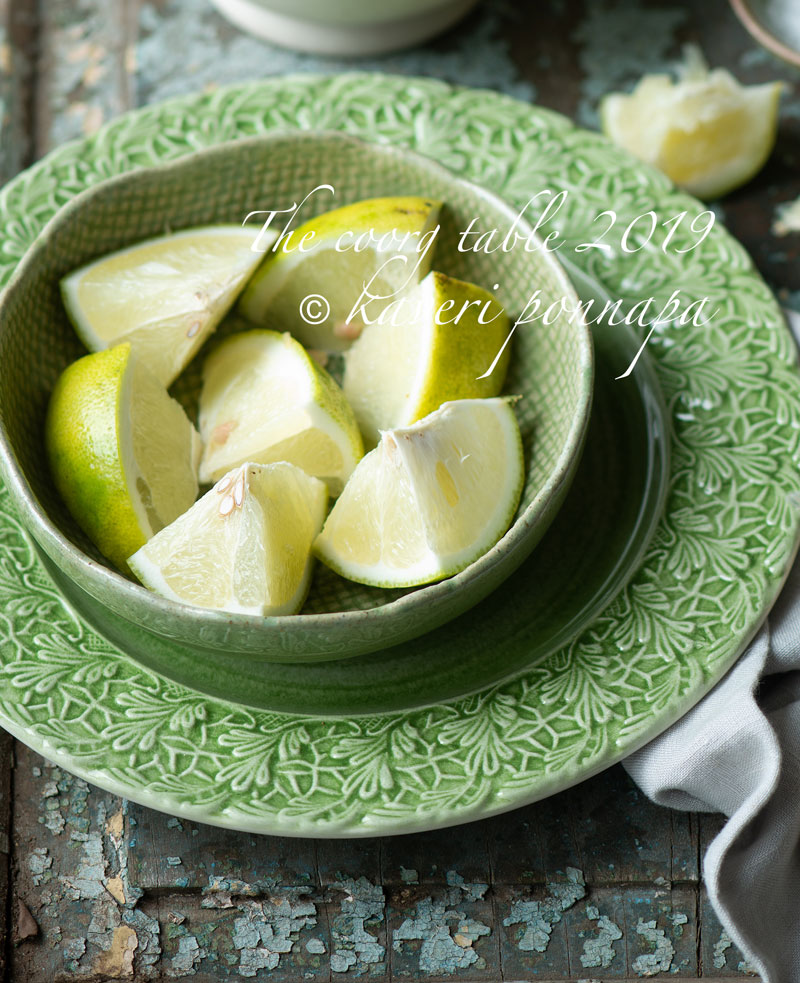
Of all the many foods we spoke of, this was the one that made her eyes sparkle as she described the flavours —sour, tinged with a pleasing bitterness and an edge of spice — laughing with disbelief at the simplicity of it all, the memory of its taste bright enough to take her back seven decades or more. Her scant directions that I followed were as frugal as the pickle itself, but the result was flavours that were clear, fresh —and even healing. It’s the kind of pickle that suggests that we can eat much more simply and thoughtfully, if we wish to, using produce that’s very easily available.
Baduvapuli, Citrus pennivesiculata, with its thick, knobbly skin and sour juicy flesh hung down from branches, bright yellow lashed with green, peering through the thick foliage of trees, always visible —but never really seen — unfamiliar to me until now.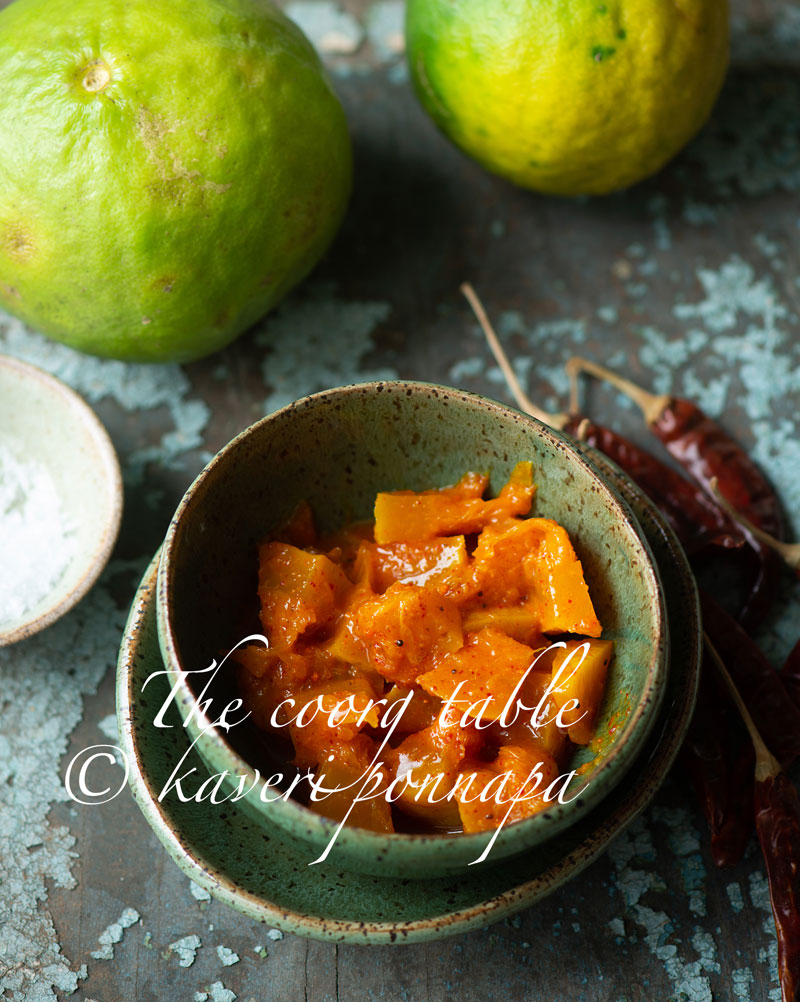
The results of my first attempts at making this pickle were so satisfying, that I now try and maintain a steady supply of it, made in very small batches. The tug of bitterness may challenge some palates: but for anyone who enjoys a little tussle with a chunk of bitter rind, the lasting, fresh aftertaste of citrus and a touch of spice, Baduvapuli is the fruit for you.
Fields, yards, hedgerows and small patches of forest in the no-man’s land bordering coffee plantations once held an abundance of roots, shoots, leaves and fruit recognizable to generations of eyes trained to see: an abundance that became invisible when we stopped valuing it as food. Michael Pollan’s “Don’t eat anything that your great-grandmother wouldn’t recognize as food,” is something I have tried to live by for many years now. The thing is, we have to know what, for her, was food.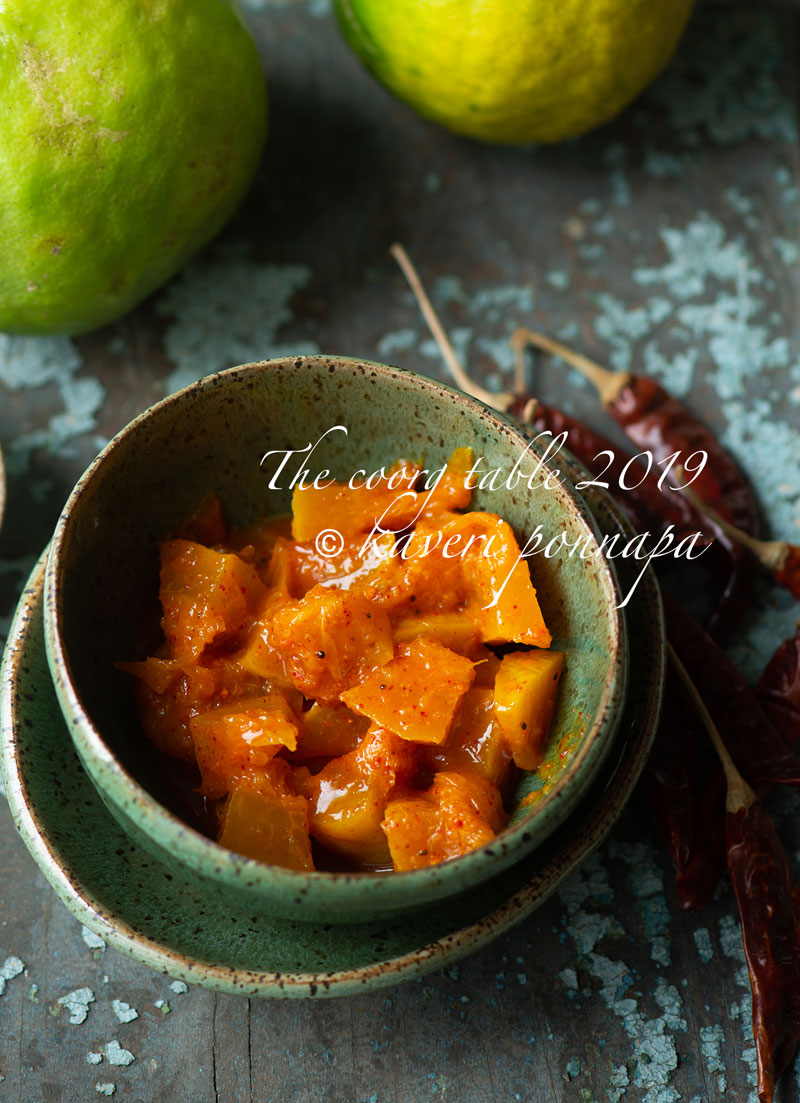
All Food Styling: Kaveri Ponnapa
Photo Credits: A.G.P Sathyaprakash
Baduvapuli seems to bears some affinity to Vadukapuli, the so-called ‘Wild Lemon’ that is used in a similar way in Kerala.
Do look out for the recipes of all the food featured here in my upcoming cookbook.



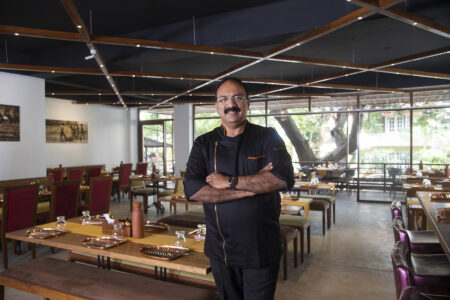
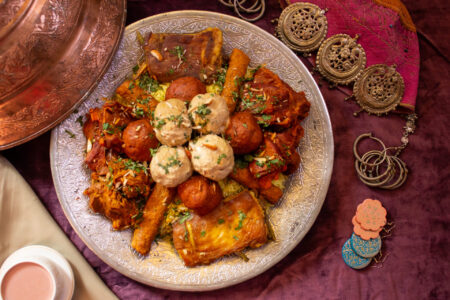
Baduvapuli pickle is very nice also pajji made of this will be good combination for curd rice. As always wonderful writing. Thank you!!
Hi Kaverappa, thank you for sharing this. I must try some Baduvapuli pajji! I love the sour, bitter flavours of this fruit. Warm wishes. Kaveri
Lovely read, as always. I’m glad you had the chance to meet her and learn about this. I don’t think anyone else would do justice to the knowledge she shared.
Also is Peruli a different?
Hello Pooja, thank you for reading. I cherish the times I get to spend with people, talking about food, especially from an older generation. I am not entirely certain about Peruli, as so many fruits and native vegetables are referred to by different names in different parts, when they are in fact the same produce. If I find out, I will share it here. Warm wishes. Kaveri
I can almost feel my mouth pucker ! Would love a bottle ( or two) in exchange for some four chilli pickle. jalapenos, thai, serrano. mustard oil, coriander based, finished off with some tamarind paste !
Kishore, this pickle, sadly, has such a short shelf life, I don’t think it will stand a journey. I suggest a session around a dining table here, with many helpings of Baduvapuli pickle! It is so refreshing. That four chilli pickle sounds sensational, especially the touches of coriander and tamarind!
Thank you very much for the article. Just wanted to remind you about meen pulli also. Kindly try to write about this citrus fruit too.
Hi Santosh, I’m glad you enjoyed reading this. Meen Puli is very interesting-the skin alone is so eye-catching- let me see what I can do. Best wishes. Kaveri